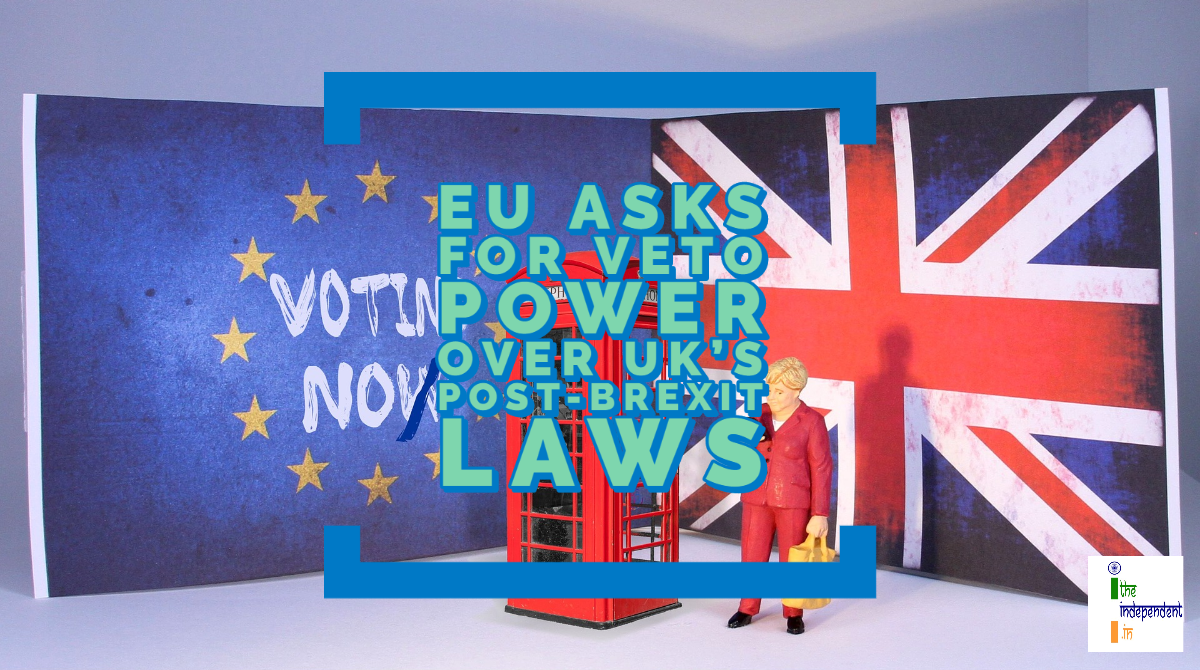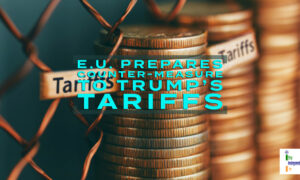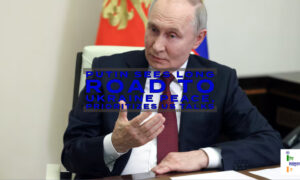
The European Union (E.U.) has officially demanded for a veto power (the right to cancel or postpone the decisions, enactments, etc.) on the United Kingdom’s (U.K.’s) post-Brexit laws and regulations.
The E.U.’s Chief Negotiator – Michel Barnier wants London to agree that it will not implement any change to the U.K. Legislation without consulting the E.U., as such a move may hamper ties with the bloc.
However, David Frost, the U.K. Prime Minister Boris Johnson’s Europe Adviser and Chief Negotiator of Task Force Europe, has rejected the said approach. Britain opines what E.U. is asking for is unjustified and is not something British people want. Earlier in the week, Barnier had travelled to London to meet his counterpart Frost and tell him that U.K. must move on state aid or there will not be a Brexit agreement. Later, Barnier said London had not shown enough flexibility and creativity on fair competition, fisheries and solving disputes.
Going ahead, Barnier is expected to travel again to London next week. This would be the 8th round of talks between them.
The next round of talks will cover topics like level playing field for open and fair competition, fisheries, trade in goods, trade in services, investment and other issues, law enforcement and judicial co-operation, energy co-operation, mobility and social security co-ordination, participation in Union’s programmes and transport (road and air). It will be held from September 8-10, 2020.
In a series of tweets, Frost tweeted, “1/3 Here is the agenda for the 8th Round of our talks with the EU. We look forward to welcoming @MichelBarnier and his team to London next week.”
1/3 Here is the agenda for the 8th Round of our talks with the EU. We look forward to welcoming @MichelBarnier and his team
— David Frost (@DavidGHFrost) September 4, 2020
to London next week. https://t.co/U7Gt3JtevA
He further tweeted, “2/3 We have scheduled lots of time for discussions, as we should at this point in the talks. However, the EU still insists we change our positions on state aid and fisheries if there are to be substantive textual discussions on anything else.”
2/3 We have scheduled lots of time for discussions, as we should at this point in the talks.
— David Frost (@DavidGHFrost) September 4, 2020
However, the EU still insists we change our positions on state aid and fisheries if there are to be substantive textual discussions on anything else.
“3/3 From the very beginning we have been clear about what we can accept in these areas, which are fundamental to our status as an independent country. We will negotiate constructively but the EU’s stance may, realistically, limit the progress we can make next week,” tweeted Frost.
3/3 From the very beginning we have been clear about what we can accept in these areas, which are fundamental to our status as an independent country. We will negotiate constructively but the EU's stance may, realistically, limit the progress we can make next week.
— David Frost (@DavidGHFrost) September 4, 2020
Senior officials in Boris Johnson’s office see only a 30-40% chance that there will be a Brexit trade agreement due to the impasse. There is a risk of a no-deal scenario at the end of the year.

Besides, Boris Johnson has said that Britain is ready for every possible outcome from Brexit in negotiations with E.U.
Addressing media, Johnson said, “We will get through this. It’s absolutely vital that our partners understand that the UK is going to do what we need to do if we have to have an … The Australia-style solution then that is what we will achieve and we will prosper mightily one way or the other.”
It is to be noted that Britain left E.U. on January 31, 2020. The Brexit process started following a U.K.-wide referendum in June 2016, in which 52% voted in favour of leaving the EU and 48% voted to remain a member. The U.K. and E.U. have a deadline of December 31, 2020 for striking a deal. During this transition, U.K. remains subject to E.U. law and remains part of the E.U. customs union and single market.







